Description
ABSTRACT
The Supreme Court of Nigeria and its Underlying Philosophies in Constitutional Matters
Chukwuma A J Chinwo*
When decisions are made by the Court, they are often open to analysis by persons who read or hear of such judgments within and outside the legal system in which the judgment is delivered. People want to know what drives or guides the Court besides or in addition to the facts of the case and applicable laws. How can different judgments given by the same Court on matters having similar facts be explained? Is there any philosophy that guides the courts, or they operate on a sort of ‘cut and nail or paste’ system depending on the particular Court’s ability or competence? These questions are fundamental, especially as it concerns the apex Court in the system, the Supreme Court in Nigeria. It has the responsibility not only to decide particular matters but also to set down the template for the lower courts. In this article, an effort is made to identify the philosophical foundation of the decisions of the Court and recommendations are made on what the philosophical content of the decisions of the Court should be like.
Keywords: Philosophical Foundation, Principle, Judicial Decisions, Judiciary, Nigeria, Supreme Court.
INTRODUCTION
Decision making by courts rather than settle controversies often give rise to greater controversies even when the parties grudgingly accept the decisions. It is ironic because the Court’s role is to settle disputes by hearing parties and determine their rights and obligations in accordance with existing laws applicable to the subject matter, the time, the place, and the Court.1This is because litigants and their lawyers have different understanding of the law and its applicability as they have different cases and expectations. The Court itself is made up of judges who are human, have their own idiosyncrasies and are capable of innocent mistakes as much as they are of mischief, if so intended. They are not infallible even where, because of the status of the Court, they are clothed with the air of finality.
* PhD. The author, a Port Harcourt-based Legal Practitioner, was until recently a Senior Lecturer in the Faculty of Law of the Rivers State University, Port Harcourt, Nigeria. He is a Supreme Court Scholar and a member of the United States Supreme Court Historical Society. He has been the protagonist since 2008 of the establishment of the Supreme Court of Nigeria Historical Society. He did his doctoral thesis research on the ‘Influence of the Supreme Court of Nigeria on the Political Development of Nigeria from 1963 – 2018’.
- Nations usually spell out in their Constitutions or relevant statutes the judicial powers and jurisdiction of the courts established in the nation. In Nigeria, the judicial powers include the power to hear and determine all questions that affect the civil rights and obligations of persons, authorities and governments which are competently brought before the Courts established by the Constitution or under its authority. Section 6(6)(b) Constitution of the Federal Republic of Nigeria 1999. The Constitution has undergone some alteration and by the Third Alterations in 2010 it included the National Industrial Court as one of the superior Courts. A court must have jurisdiction, which is the authority to hear and determine particular cases, before it can exercise judicial power. Ajomale v Yaduat (No.2) [1991] 5 SCNJ 178; Abacha v Federal Republic of Nigeria [2014] All FWLR (Pt 726) 412, 471.

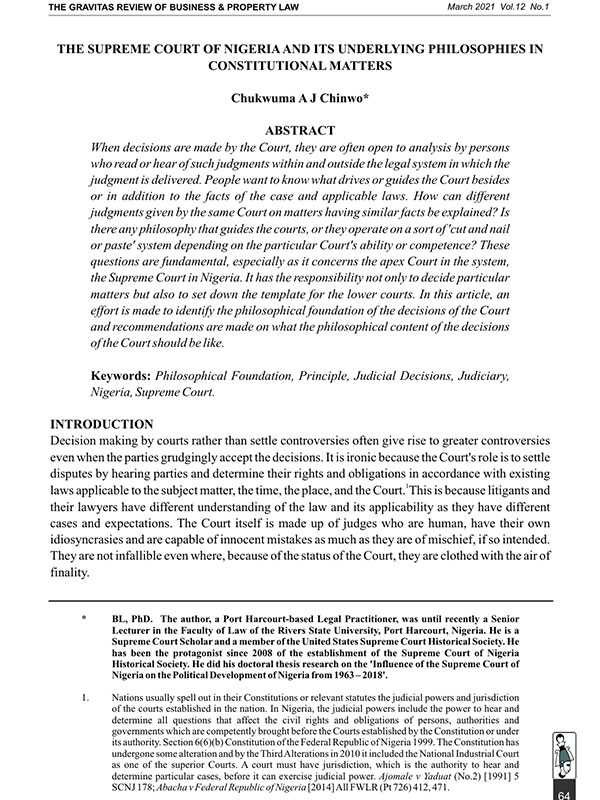
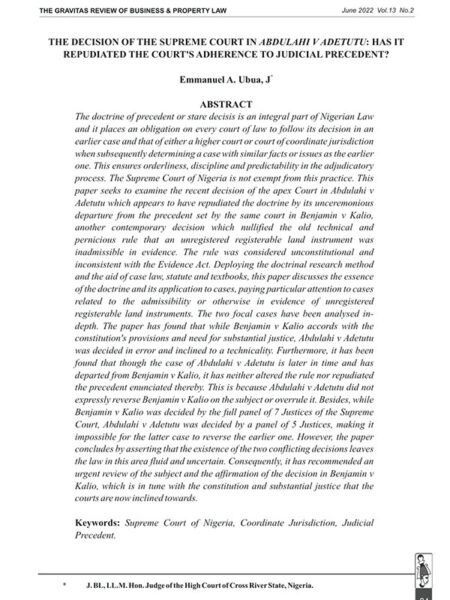
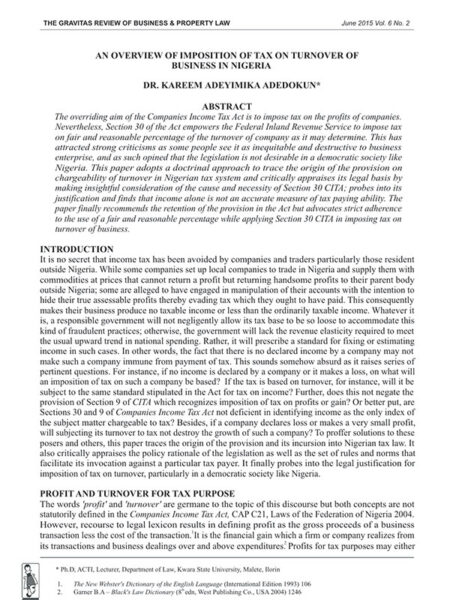
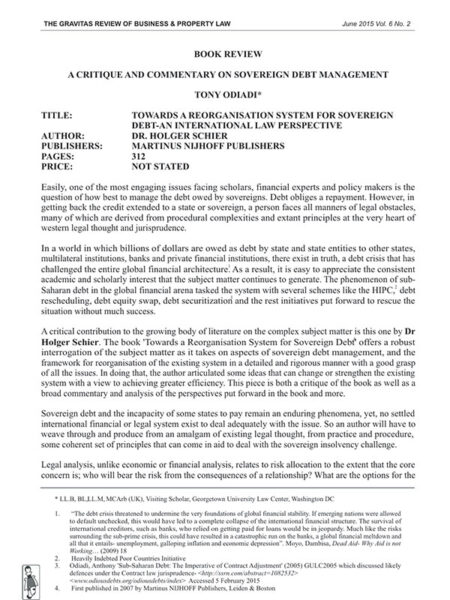
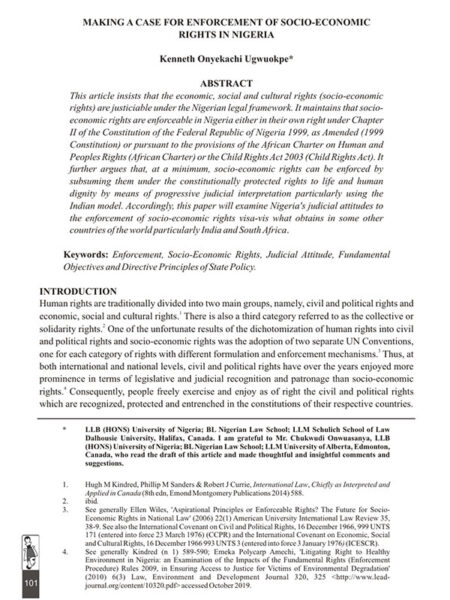


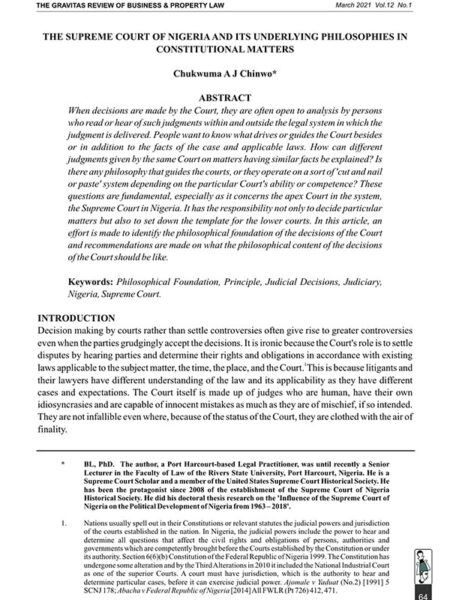
Reviews
There are no reviews yet.